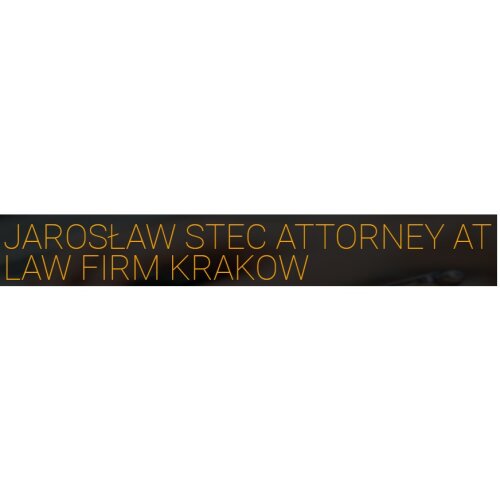Best Corporate & Commercial Lawyers in Poland
Share your needs with us, get contacted by law firms.
Free. Takes 2 min.
Or refine your search by selecting a city:
List of the best lawyers in Poland
About Corporate & Commercial Law in Poland
Corporate and commercial law in Poland forms the foundation of how businesses are set up, run, and managed within the country. This field governs the creation and operation of various business entities such as limited liability companies, joint stock companies, partnerships, and sole proprietorships. It also covers commercial transactions, including contracts, sales, mergers and acquisitions, intellectual property, competition, and regulatory compliance. Polish corporate and commercial law is influenced by European Union legislation, ensuring that it aligns with best practices and standards across the EU. The dynamic business environment and ongoing legal reforms make it important for business owners, investors, and managers to stay aware of changes in the law.
Why You May Need a Lawyer
Navigating the complex landscape of corporate and commercial law in Poland can be challenging, especially for new entrepreneurs or those expanding their operations. People often seek legal advice in situations such as company formation, restructuring, contract negotiation and review, resolving shareholder disputes, or handling mergers and acquisitions. Legal support may also be required during regulatory investigations, compliance checks, protecting intellectual property, or addressing employment issues within the company. A qualified lawyer can help protect your interests, minimize risks, and ensure that your business complies with both local and EU legal requirements.
Local Laws Overview
Corporate and commercial laws in Poland are primarily governed by several key acts, most notably the Polish Commercial Companies Code (Kodeks spółek handlowych) and the Civil Code. When setting up a company, the chosen legal form is crucial as it defines the liability, structure, and tax obligations. Limited liability companies (spółka z ograniczoną odpowiedzialnością, or Sp. z o.o.) are the most common business structure. Polish law also prescribes strict procedures for conducting annual meetings, keeping proper records, and reporting to the National Court Register (KRS). Mergers, acquisitions, and corporate restructuring are regulated to protect both shareholders and third parties. When it comes to contracts, Polish law upholds the principle of freedom of contract, but also includes certain mandatory provisions for consumer protection and fairness. Businesses are also subject to the EU’s competition and antitrust regulations, which are closely enforced by the Office of Competition and Consumer Protection (UOKiK). Understanding these legal frameworks is essential to avoid costly errors and penalties.
Frequently Asked Questions
What types of business entities can I form in Poland?
The most common business entities are sole proprietorships, civil law partnerships, limited liability companies (Sp. z o.o.), joint stock companies (S.A.), and limited partnerships. Each has different legal and tax implications.
How long does it take to incorporate a company in Poland?
Registering a business usually takes from a few days to a few weeks, depending on the type of entity and how complete your documentation is. Using electronic registration can speed up the process.
Do I need to have a physical office to register a company?
Yes, Polish law requires a registered address for all companies. This can be either a physical office or a virtual registered office service.
Can foreigners own or manage Polish companies?
Yes, foreign individuals and entities can own shares and act as directors or shareholders in most types of Polish companies, subject to specific legal requirements regarding residency or representation for certain sectors.
What are the annual requirements for Polish companies?
Companies must file annual financial statements, hold shareholder meetings, and update the National Court Register with any changes. There are also tax filings and, for some sectors, regulatory reporting obligations.
How are commercial disputes resolved?
Most commercial disputes in Poland can be settled through negotiation, mediation, arbitration, or in civil courts. Specialized commercial courts handle complex business-related cases.
What is the minimum share capital for a company?
For a limited liability company (Sp. z o.o.), the minimum share capital is 5,000 PLN. For a joint stock company (S.A.), it is 100,000 PLN. The law sets out other requirements depending on the type of entity.
How are mergers and acquisitions regulated?
Mergers and acquisitions are regulated both under Polish law and EU competition law. Transactions may require clearance from the Office of Competition and Consumer Protection (UOKiK), especially if they may affect market competition.
Are commercial contracts in Poland subject to any mandatory rules?
While parties are generally free to agree on contract terms, certain rules protect parties from unfair terms, especially for consumers and in sectors like transportation, insurance, or leasing. Some formal requirements must also be met for contracts to be enforceable.
How can I protect intellectual property when doing business in Poland?
Intellectual property rights such as trademarks, patents, and copyrights can be registered with the Polish Patent Office. Legal agreements and contracts should also clearly address IP ownership and usage.
Additional Resources
If you need more information or support with corporate and commercial legal matters in Poland, the following resources may be helpful:
- The Ministry of Economic Development and Technology - business regulations and start-up advice - The National Court Register (KRS) - company registration and filings - The Office of Competition and Consumer Protection (UOKiK) - competition law and fair trading - The Polish Patent Office - information on intellectual property registration and protection - Regional Chambers of Commerce - practical business advice and networking - Professional legal associations, such as the Polish Bar Association and the National Chamber of Legal Advisers, can help you find a qualified lawyer - Business support organizations and accelerators for entrepreneurs and foreign investors
Next Steps
If you need legal advice or assistance in corporate and commercial matters in Poland, consider taking the following steps:
- Clearly identify the area in which you need help, such as company formation, contracts, or resolving a dispute - Gather relevant documents and information about your business or issue - Research and shortlist lawyers or law firms who specialize in corporate and commercial law, preferably with experience in your sector - Schedule an initial consultation to discuss your situation and potential legal strategies - Ask about costs, timelines, and the specific steps involved in your case - Keep records of your interactions and any advice you receive - Follow your lawyer’s instructions and stay proactive in responding to legal requirements or deadlines
Proper legal support can help you avoid risks, save time, and ensure your business is compliant and protected as you operate or expand in Poland.
Lawzana helps you find the best lawyers and law firms in Poland through a curated and pre-screened list of qualified legal professionals. Our platform offers rankings and detailed profiles of attorneys and law firms, allowing you to compare based on practice areas, including Corporate & Commercial, experience, and client feedback.
Each profile includes a description of the firm's areas of practice, client reviews, team members and partners, year of establishment, spoken languages, office locations, contact information, social media presence, and any published articles or resources. Most firms on our platform speak English and are experienced in both local and international legal matters.
Get a quote from top-rated law firms in Poland — quickly, securely, and without unnecessary hassle.
Disclaimer:
The information provided on this page is for general informational purposes only and does not constitute legal advice. While we strive to ensure the accuracy and relevance of the content, legal information may change over time, and interpretations of the law can vary. You should always consult with a qualified legal professional for advice specific to your situation.
We disclaim all liability for actions taken or not taken based on the content of this page. If you believe any information is incorrect or outdated, please contact us, and we will review and update it where appropriate.
Browse corporate & commercial law firms by service in Poland
Poland Attorneys in related practice areas.
Browse corporate & commercial law firms by city in Poland
Refine your search by selecting a city.















